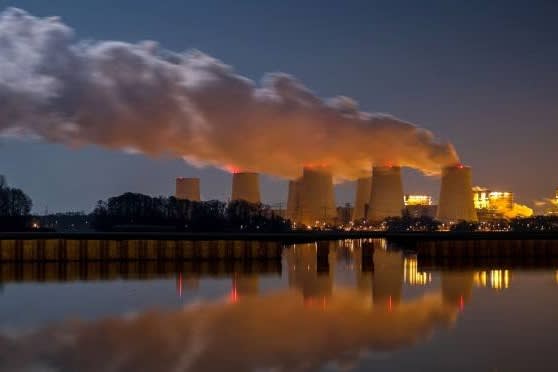Athens official blames wildfires on ‘criminal lack of preparedness’
Greece updates
Sign up to myFT Daily Digest to be the first to know about Greece news.
The official charged with protecting Greece’s capital from the effects of rising temperatures has criticised the “criminal lack of preparedness” by the world’s political leaders, as the Mediterranean region endures one of the hottest summers on record.
Eleni Myrivili, chief heat officer of Athens, said the fires that had reached the outskirts of the city and devastated more than 120,000 hectares of the Aegean nation were only a foretaste of what was to come.
“This is . . . the beginning of an irreversible devastation, a ravaging of ecosystems and livelihoods, due to climate change and the criminal lack of preparedness for extreme heat,” she said in an interview with the Financial Times.
“Greece, as well as the rest of the world, had better build some serious resilience to heat fast because this summer is only the beginning.”
The entire Mediterranean region has battled waves of devastating wildfires this summer, from Turkey to France, Italy and Spain, as well as north Africa.
Experts say record-breaking heatwaves exacerbated by climate change are the main reason, although several people have also been arrested on suspicion of arson in relation to the blazes in Greece. The hottest-ever recorded temperature for Europe, 48.8C, was registered in Sicily last week.
Athens is among a small group of cities that have appointed a dedicated chief heat officer to provide a focal point for the response to rising temperatures, along with Miami-Dade County in the US and Freetown, capital of Sierra Leone.


Myrivili serves as mayoral adviser and chief resilience officer for Athens as well as interim chief heat officer, preparing Europe’s hottest capital city for the more frequent heatwaves.
Fires have burnt at the edges of Athens, a city of almost 4m inhabitants, for several weeks, and continued to threaten the capital on Wednesday. Severe wildfires have also destroyed properties and livelihoods on Evia, Greece’s second-largest island.
While extreme heat was the biggest threat that accompanied climate change, “there’s very little preparation . . . nobody has been preparing cities for global warming”, Myrivili said.
At the same time, the scale of this summer’s fires gave an opportunity for policymakers to respond. “If it wasn’t for the fires we wouldn’t have things the media could report on,” she said, pointing out that other effects, such as heat-related deaths, were less visible and often more drawn out.
“Heatwaves need to be more specific in the minds of people — they’re not visible,” she said.
Kyriakos Mitsotakis, Greece’s prime minister, has authorised a €500m relief package, after initially having to apologise for delays in the firefighting efforts. He has also appointed a new minister in charge of recovery from natural disasters.
In an interview with CNN last weekend, he described the fires in Greece as “a wake-up call” to drastically change electricity production, construction, farming and transport. “This has to happen and we need to start now,” he said.
More than 970 cities around the world will experience average summertime highs of 35C by 2050, according to the C40 coalition of world cities. This compared with a little more than a third of that number today. The number of the world’s population exposed to such temperatures is also set to rise to 1.6bn, a jump of 800 per cent.
“We’re in a crisis, we saw it this summer, and people are suffering,” Myrivili said. “We have to make sure we protect the most vulnerable. It’s always the most vulnerable that have to deal with it.”
Climate Capital

Where climate change meets business, markets and politics. Explore the FT’s coverage here.
Are you curious about the FT’s environmental sustainability commitments? Find out more about our science-based targets here